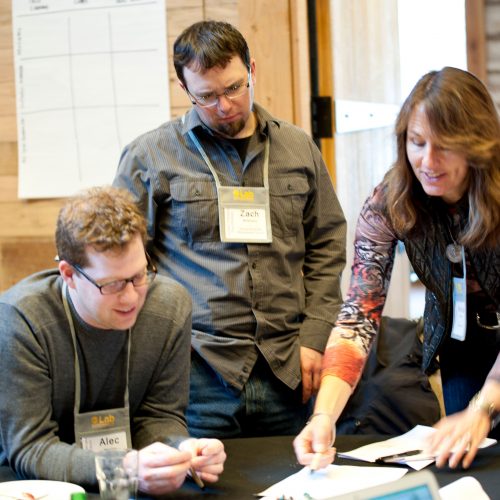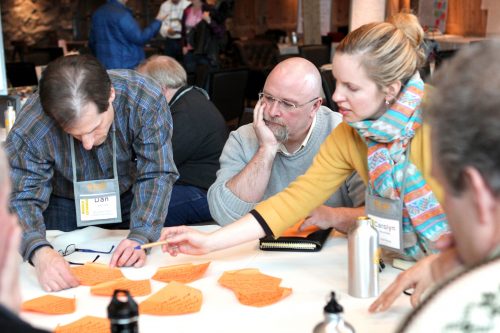
eLab Accelerator 2016
Zibi - Ottawa's Zero Carbon Community

Project Objective
The objective of the work at Accelerator is to further develop the business model for the district utility including the asset ownership, rate structures, investment strategy, and operations plan. This will ultimately result in the formulation of a recommendation to be presented to the respective leadership boards of each of the stakeholder organizations.

Project Team Members
Scott Bentley, Project Manager, Zibi District Thermal System, Windmill Developments
Aaron Barter, Senior Associate, Community Energy, Advanced Energy Centre (MaRS Cleantech)
Charles Berndt, Distribution Engineer, Hydro Ottawa Limited
Christopher Murphy – EIT, Asset Management – Hydro Ottawa Ltd.

Project Description
Zibi, by Windmill Developments, in the heart of Canada’s capital city of Ottawa, aspires to be the most sustainable and eco-friendly community in the world. The local energy system deviates from the traditional utility role, focused on distribution of electricity ‘to the meter’, and instead features a district utility focused on sustainability, digitally enabled consumer choice, and local energy provision and consumption. It will feature an integrated energy system featuring automated buildings, energy storage, waste heat recovery, electric vehicle sharing, geothermal, energy efficiency programs, and demand response to enable on-site renewable energy. With a new public-private partnership, the local municipally-owned electrical utility (Hydro Ottawa) is working with a leading innovation centre (MaRS Discovery District) to integrate innovative clean energy solutions into the project in support of the One Planet Action Plan, which focuses on zero-carbon and zero-waste development, but also emphasizes sustainable transport, local food, social equity and a vibrant local economy.

Progress Made to Date (pre-Accelerator)
System engineering and development are currently underway at Zibi. Construction will be starting early 2016 with environmental remediation, and quickly progressing towards installation of the district energy system. Earlier this year, the project team convened stakeholders at MaRS for the Energy Innovation Design Charette to brainstorm new solutions at the distribution edge that could enable a net-zero carbon energy system at Zibi, which included urban planners, entrepreneurs, investors, industry leaders, as well as policy and regulatory experts. The group developed potential solutions ideas focused on new utility business models and methods for achieving sustainability targets - for example, the district utility could offer an online sustainability concierge for local businesses, community aggregated demand response or ancillary services, or even crowdsource and share energy management settings for condo residents. Since then, project leaders have subsequently focused on refining down this to high-priority utility business opportunities, which have included district heating and cooling, a consumer-facing sustainability concierge application, and visualization tools to encourage net-zero lifestyles within Zibi. Furthermore, Hydro Ottawa and Windmill have signed a memorandum of understanding which defines the commitment from each organization to explore this partnership opportunity and to further develop the business opportunity together.

Post-Accelerator Outcomes
At Accelerator, the team explored options for what a new district utility for the Zibi community could look like, and what next steps team members could take to realize the vision of a net-zero carbon local energy system. The team discussed two ownership structures, including a “business as usual” model where the company would still own and operate all of the community’s electric utilities and a “New Co.” model where a joint venture between Hydro Ottawa and Windmill Developments would act as the community’s energy provider, in addition to providing other services to the community. The team worked on a straw man business model of the New Co. approach that allowed them to better articulate their vision of how New Co. could operate. In addition to gaining an understanding of this new utility’s proposed business model, the team outlined the timeline for achieving key energy-related milestones in the community over the next few years. Going forward, the team will begin working with the different stakeholders to more clearly model how the New Co. would operate to decide if this is the path the team will choose to create a net-zero carbon energy system for the Zibi community.